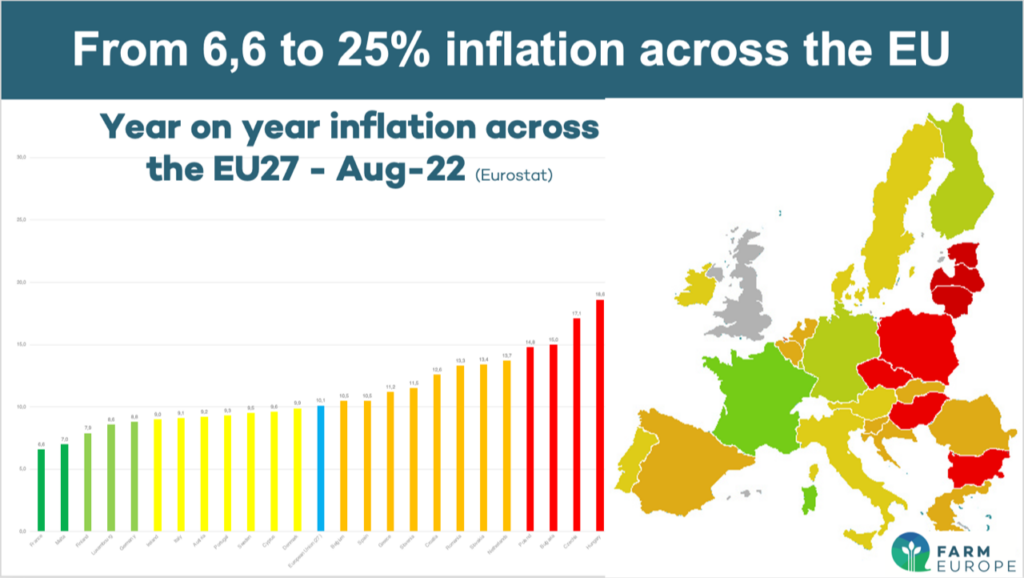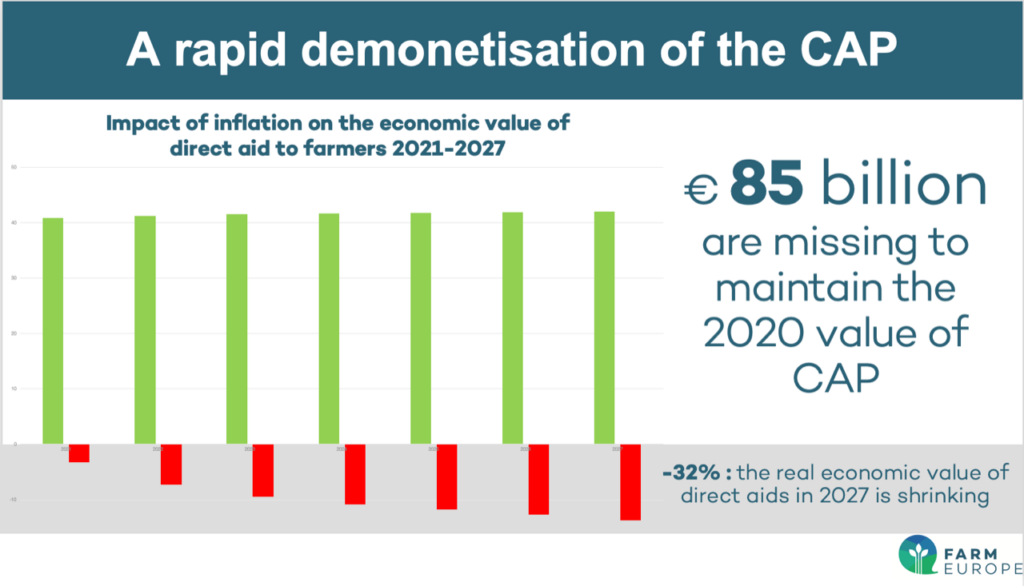Following the Commission proposals on a Green Deal and Farm to Fork strategies, we’ve been hearing too often, including from Vice-President Timmermans, that any negative impacts on farmer’s incomes can be compensated by the Common Agricultural Policy.
The latest concrete example of this argument is in the Commission proposal for a Regulation on the Sustainable Use of Pesticides (SUR). The Commission explicitly says that the additional regulatory costs could be compensated by the CAP budget. The financing of the new RePowerEU’s ambition on biomethane could also be mentioned.
There are however two problems with this approach “CAP pays it all”.
The first is that as the CAP budget is already allocated, transferring funds to new forms of support necessarily entails withdrawing funds from existing forms of support.
A less obvious, but even more significant problem, is that the CAP budget is quickly shrinking. The culprit is high inflation, which reduces the real value of support.
When the new CAP budget was agreed the scenario was still one of low inflation, the maximum rate expected being the ECB yearly 2% target. Or today we witness an average EU inflation close to 10%, and the ECB was obliged to significantly up its forward inflation forecasts.
To make matters even worse, inflation in a number of countries is running well above the average. Those countries where inflation is below the EU average are still facing high inflation, well above the old 2% target.
Taking the ECB data and inflation forecasts, which could well be too rosy having regard their recent overly optimistic inflation forecasts, the real value of the CAP budget will shrink by an aggregate 84.57 billion euros in real terms in the period 2021-27. To put it in perspective, the aggregate 2021-27 real value of the CAP budget will shrink 21.95% with regard to 2020, and in the last year (2027) 34.12% vis-à-vis 2020. Over one third less real support in 2027.
Direct support received by farmers is directly and heavily impacted. Even investment aids are impacted as the total amounts available shrink with inflation. Pillar I will lose a staggering 68.60 billion euros, and Pillar II 15.97 billion euros.
Under those circumstances, finding a new political path to deliver the green deal, based on a green growth strategy for the agricultural sector is urgent, switching from a regulatory based strategy aiming at cutting productivity tools to a proper investment strategy fostering agronomic systemic approaches and innovation, embarking farmers on a positive path for both the economy and climate.
The remedy to a CAP funding melting away like snow in the sun is to reprice the CAP budget in real terms, i.e. to adjust it yearly by the level of inflation, in addition to building a proper EU investment fund targeted on strategic sectors in need of transition like agriculture and energy, instead of leaving a haphazard approach based on state aid.
Will co-legislators adjust the budget for inflation? Taxes perceived by Member States go up with inflation, shouldn’t support do likewise?
O artigo foi publicado originalmente em Farm Europe.


